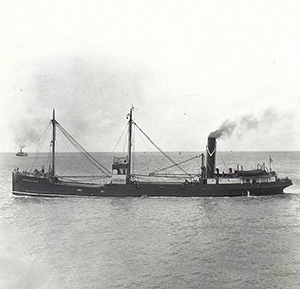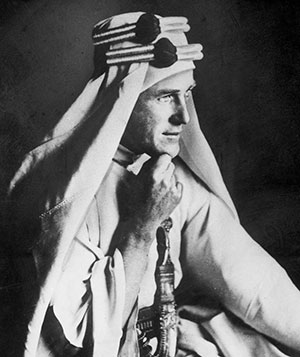James Hogan, revolutionary, historian, political scientist (1898-1963)
Published in 18th–19th - Century History, 20th-century / Contemporary History, Issue 1 (Spring 1999), News, Volume 7Bodin, Hobbes, Hegel, Weber, Troeltsch and Von Gierke were the political philosophers whom the late Professor James Hogan used lecture us on as his students in University College Cork in the late 1950s. These days it would be unusual for a professor of history to put political theory at the centre of his teaching. But as was evident to those who listened to Hogan’s ardent exposition and dry wit, or who found themselves fixed periodically by his vivid blue eyes set in that finely-modelled face, this was a man to whom ideas mattered hugely and who was able to show why they should matter to others. Margaret MacCurtain, Donncha Ó Corráin, Eoghan Harris and Michael O’Leary are among the many students who were influenced by him.
James Hogan was born near Loughrea, County Galway, his father being a large farmer and a member of the old Land Commission. He was educated at Clongowes, where he was one of the few who studied Irish, and at University College Dublin, where Eoin MacNeill, Mary Hayden and John Marcus O’Sullivan were among his teachers. He graduated in 1918 with first class honours in history, wrote his first book, Ireland in the European System (1920), and was appointed professor of history at UCC in the same year. This was exceptionally young for such an appointment, but Hogan was seen as one of the rising intellectuals of the new Irish state that was then being born.
He had joined the IRB in 1915 while at UCD and was a member of the 3rd Dublin Battalion of the Volunteers. He was at home in Galway on vacation when the Easter Rising broke out in Dublin. He fought in the East Clare Brigade in the War of Independence. In 1922, while on leave of absence from UCC, he became Assistant Adjutant-General in the new Free State Army. He was a close friend of Michael Collins and was Director of Intelligence during the Civil War, with the rank of Major-General. His brother Patrick Hogan became Minister for Agriculture in the first Free State government. After the Civil War in 1923 he resigned from the army and, following a period at the Sorbonne in Paris, returned to take up the chair at UCC, where he succeeded Professor Merriman who had been elected College President. He remained in charge of the History Department there until his death forty years later.
James Hogan did significant work on early medieval Irish history, in particular on land measurement and the political structure of Gaelic society, developing and amending Eoin MacNeill’s work. He also wrote on Shane O’Neill’s interaction with the government of Elizabeth I and on the 1640s war in Ireland. He was general editor of the twenty-three volumes of the Irish Manuscripts Commission’s periodical, Analecta Hibernica (1930-1966), the last volume being published posthumously. He meticulously edited three large volumes of early-modern Irish historical documents for the Commission and played a very active part in its work. In the early 1930s he turned to political theory and the philosophy of history, and in 1945 published Election and Representation, a book that can validly be said to mark the beginning of Irish political science as an academic discipline. He became interested in Hegel as one of the philosophical progenitors of Marxism and wrote some articles thereon, although the effects of overwork and perhaps a sense of intellectual isolation in post-war Cork on his highly-strung temperament prevented him completing the major study he had planned. He had been elected to the Royal Irish Academy in 1927 and in 1933 was awarded the degree of D.Litt. by the National University of Ireland.
As a constitutional nationalist historian occupying a chair at UCC, James Hogan’s work and concerns were rather out of fashion in the period of modern Irish historiography which was dominated by Professors Theo Moody and Dudley Edwards, Dublin-based and Dublin-centred as that was. The changing political and intellectual climate of recent years is likely to open the way to a more sympathetic reassessment of James Hogan’s life and work.
The commemorative conference last October which the Department of History at UCC organised to mark the centenary of Professor Hogan’s birth surely marks the beginning of that. Even though I had been one of his students, that conference brought home to me for the first time, as I expect it did to others present, the sheer breadth, versatility and interest of his intellectual concerns and writings. A volume of papers based on the conference is envisaged in due course. Desirably, it should include some photographic items from the exhibition of Hogan documents and memorabilia displayed in UCC’s Boole Library to accompany the conference. It should include also the full text of Hogan’s fascinating memoir of the Civil War period, hitherto unpublished, excerpts from which were read at the conference. These give vivid impressions of leading figures in the Free State regime.
Such a volume on James Hogan’s life and work will make people today aware of the importance of a great man whose reputation has been undeservedly neglected, who was a fine historian, a dedicated and considerate teacher and one of Ireland’s leading twentieth-century intellectuals.
Anthony Coughlan is Senior Lecturer in Social Policy at Trinity College, Dublin.


















